-
-
|
|
|
|
|
|
Charisma is the measure of the character's
combined physical attractiveness, persuasiveness,
and personal magnetism.
A generally nonbeautiful
character can have a very high charisma
due to strong measures
of the other two aspects of charisma.
It is important to all characters, as it
has an effect on dealings with others,
principally NPCs,
mercenary hirelings,
prospective retainers, and monsters. It absolutely
dictates the total number of henchmen
a character is able to retain. It
affects loyalty of all hirelings &&
retainers. It is the key to leadership. The
following table expresses the facts regarding
charisma scores.
DMG:
Many persons have the sad
misconception that charisma is merely physical attractiveness.
This error is obvious to
any person who considers the subject with perceptiveness.
Charisma is a combination
of physical appearance,
persuasiveness,
and personal magnetism.
True charisma becomes evident
when one considers such historic examples of Julius Caesar, Napoleon Bonoparte,
and Adolf Hitler. Obviously, these individuals did not have an 18 score
on physical beauty,
so it is quite possible
to assume that scores over 18 are possible,
for any one of the named
historical personalities would have had a higher charisma score
-- there can be no question
that these individuals were 18's --
if they would have had great
attractiveness as well as commanding personal magnetism and superb persuasiveness.
<Comeliness, slightly revise Cha descrip>
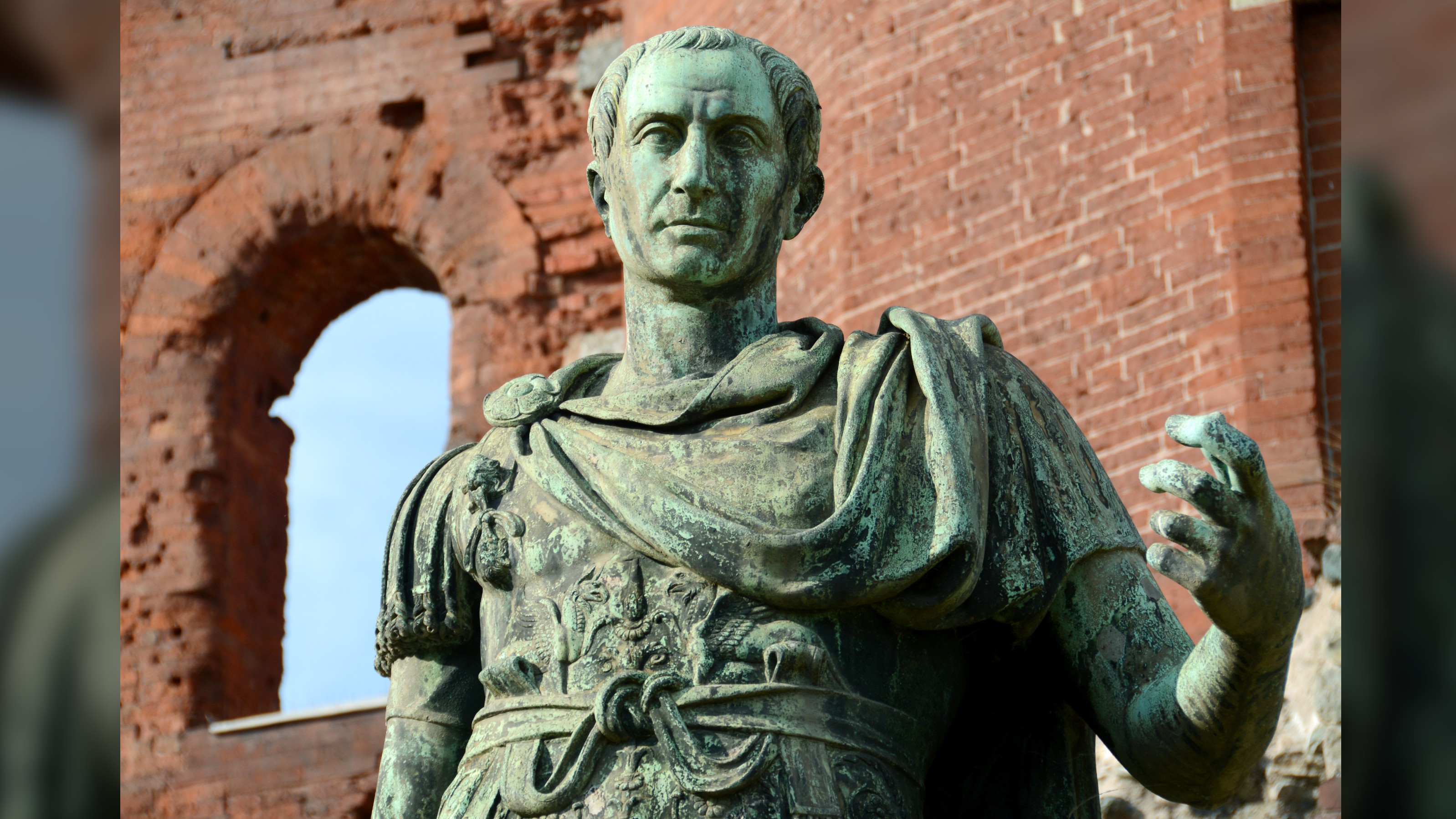
| Ability Score | General Information | Maximum No. of Henchmen | Loyalty Base | Reaction Adjustment | Awe Power / Horror |
| -7 | - | - | - | -70% | Up to 12 HD/levels |
| -6 | - | - | - | -65% | Up to 10 HD/levels |
| -5 | - | - | - | -60% | Up to 8 HD/levels |
| -4 | - | - | - | -55% | Up to 6 HD/levels |
| -3 | - | - | - | -50% | Up to 4 HD/levels |
| -2 | - | - | - | -45% | Up to 2 HD/levels |
| -1 | - | - | - | -40% | Up to 1 HD/levels |
| 0 | - | 1 | - | -35% (Dragon 107) | - |
| 1 | - | 1 | -35% (Dragon 107) | -30% (Dragon 107) | - |
| 2 | - | 1 | -30% (Dragon 107) | -30% (Dragon 107) | - |
| 3 | - | 1 | -30% | -25% | - |
| 4 | - | 1 | -25% | -20% | - |
| 5 | Here or lower the character can only be an assassin | 2 | -20% | -15% | - |
| 6 | - | 2 | -15% | -10% | - |
| 7 | - | 3 | -10% | -05% | - |
| 8 | Minimum charisma for an elf character | 3 | -05% | normal | - |
| 9 | - | 4 | normal | normal | - |
| 10 | - | 4 | normal | normal | - |
| 11 | - | 4 | normal | normal | - |
| 12 | Maximum charisma for a half-orc character** | 5 | normal | normal | - |
| 13 | - | 5 | normal | +05% | - |
| 14 | - | 6 | +05% | +10% | - |
| 15 | Minimum charisma for a druid character | 7 | +15% | +15% | - |
| 16 | Maximum charisma for a dwarf character*** | 8 | +20% | +25% | - |
| 17 | Minimum charisma for a paladin character | 10 | +30% | +30% | - |
| 18 | - | 15 | +40% | +35% | - |
| 19 | - | 20 | +50% | +40% | Up to 1 HD/level |
| 20 | - | 25 | +60% | +45% | Up to 2 HD/level |
| 21 | - | 30 | +70% | +50% | Up to 4 HD/level |
| 22 | - | 35 | +80% | +55% | Up to 6 HD/level |
| 23 | - | 40 | +90% | +60% | Up to 8 HD/level |
| 24 | - | 45 | +100% | +65% | Up to 10 HD/level |
| 25 | - | 50 | +100% | +70% | Up to 12 HD/level |
** Charisma maximum applies only with respect to non-orcs and non-half-orcs (see CHARACTER RACES, Half-Orcs).
*** Charisma maximum applies only with respect to non-dwarves (see CHARACTER RACES, Dwarves).
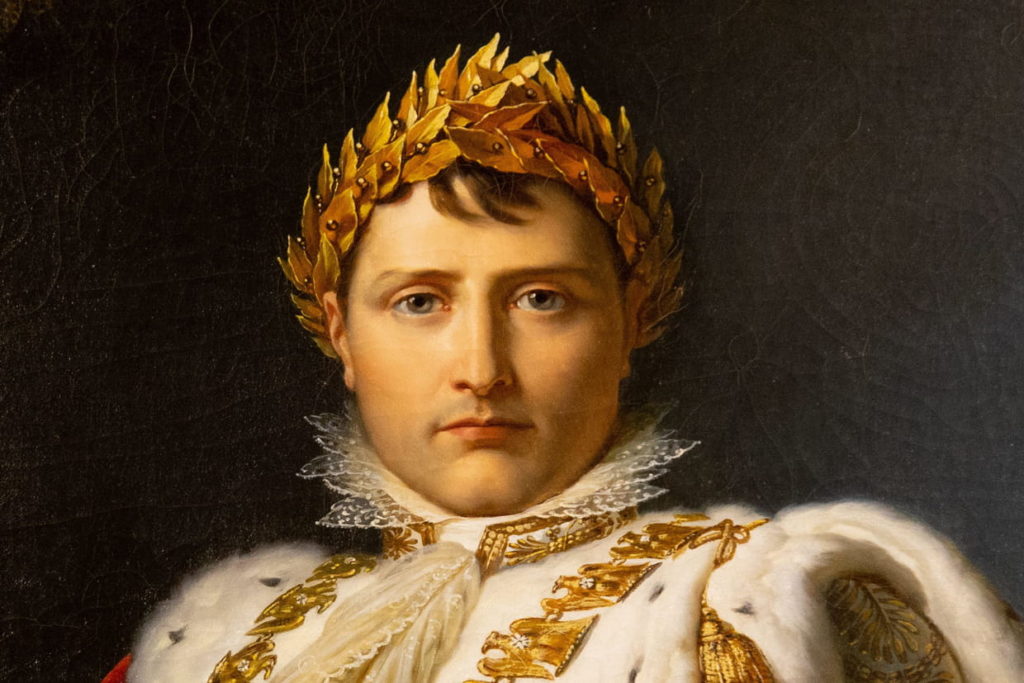
Notes Regarding Charisma Table:
Maximum Number of Henchmen
states the number of non-player
characters who will serve as permanent
retainers of the player character.
It does not affect the number of mercenary
soldiers, men-at-arms,
servitors, and similar persons in the
pay of the character.
Loyalty
Base simply shows the subtraction
from or addition to the
henchmen's and other servitors' loyalty
(q.v.) scores.
Reaction Adjustment indicates the
penalty or bonus due to the character
because of charisma in meeting and dealing
with persons and creatures
encountered. For example, the character
might encounter a basically
neutral intelligent creature and seek
to converse in order to gain some
advantage. If the charisma of the character
is low, he or she will be
working under a handicap which will have
to be overcome by generous
offers and gifts if a chance of success
is hoped for. On the other hand, if
the character's charisma score is high,
he or she will begin negotiations
from a strong starting position due to
charm and magnetism.
Awe Power is defined
as the reverential fear or dread or overpowering desire to
worship caused by the mere sight and presence
of the divinity.
This works through any control
up to and including a magic jar spell.
Stunned creatures cannot initiate any
action other than physical defense if attacked
while under the influence of the awe
power.
Note that the awe power applies
only to divine beings (gods and demigods).
-
Horror
The horror which their appearance
and presence inspires
causes creature in the hit dice or level
range noted below to be stunned
with fear and detestation until the being
is no longer in sight.
As with awe power, even if a person
were to be given negative
charisma through some terrible curse or
change, he or she would
acquire the horror ability.
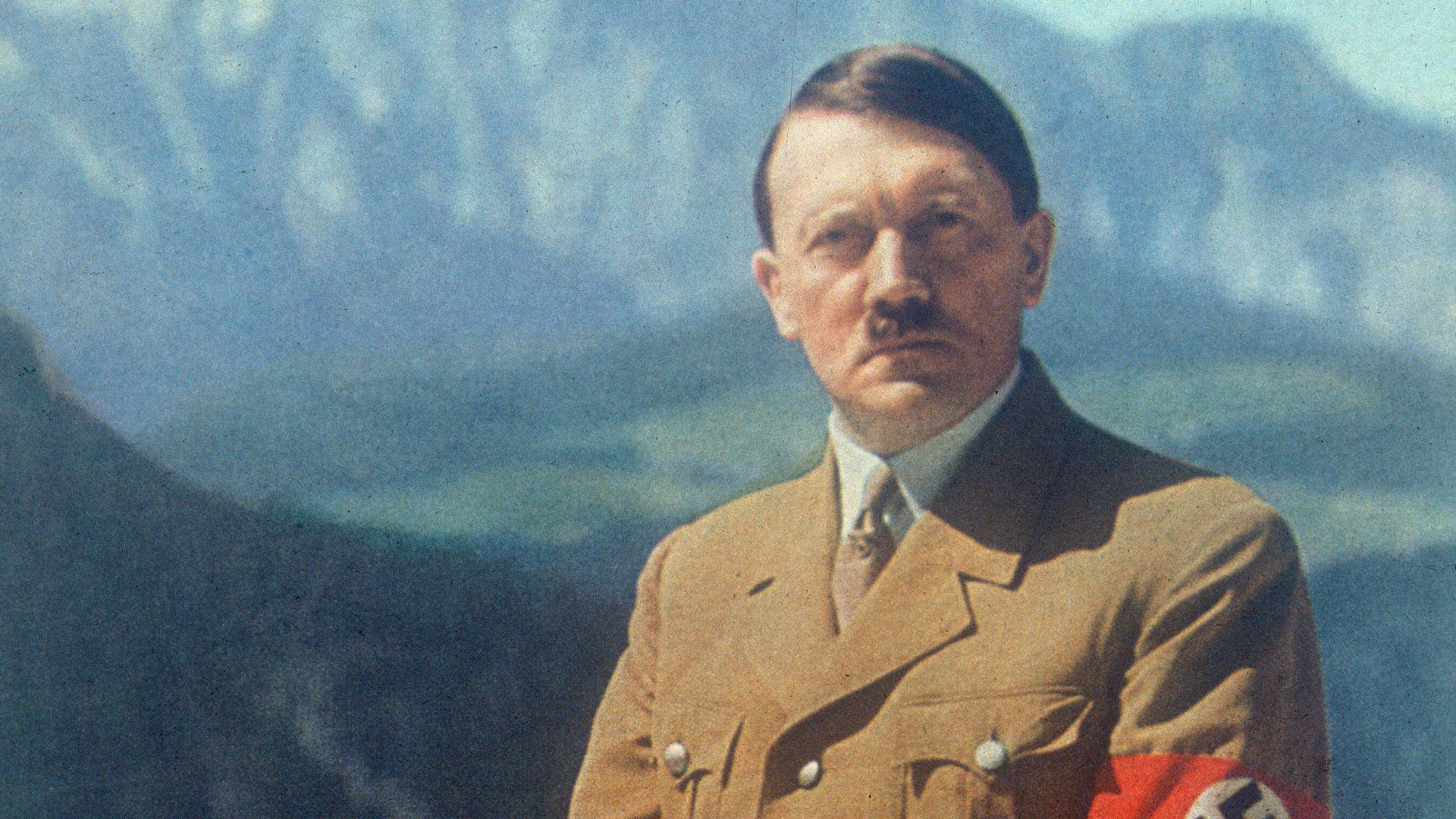
Balder
(god of charisma)
Sune (goddess
of charisma)
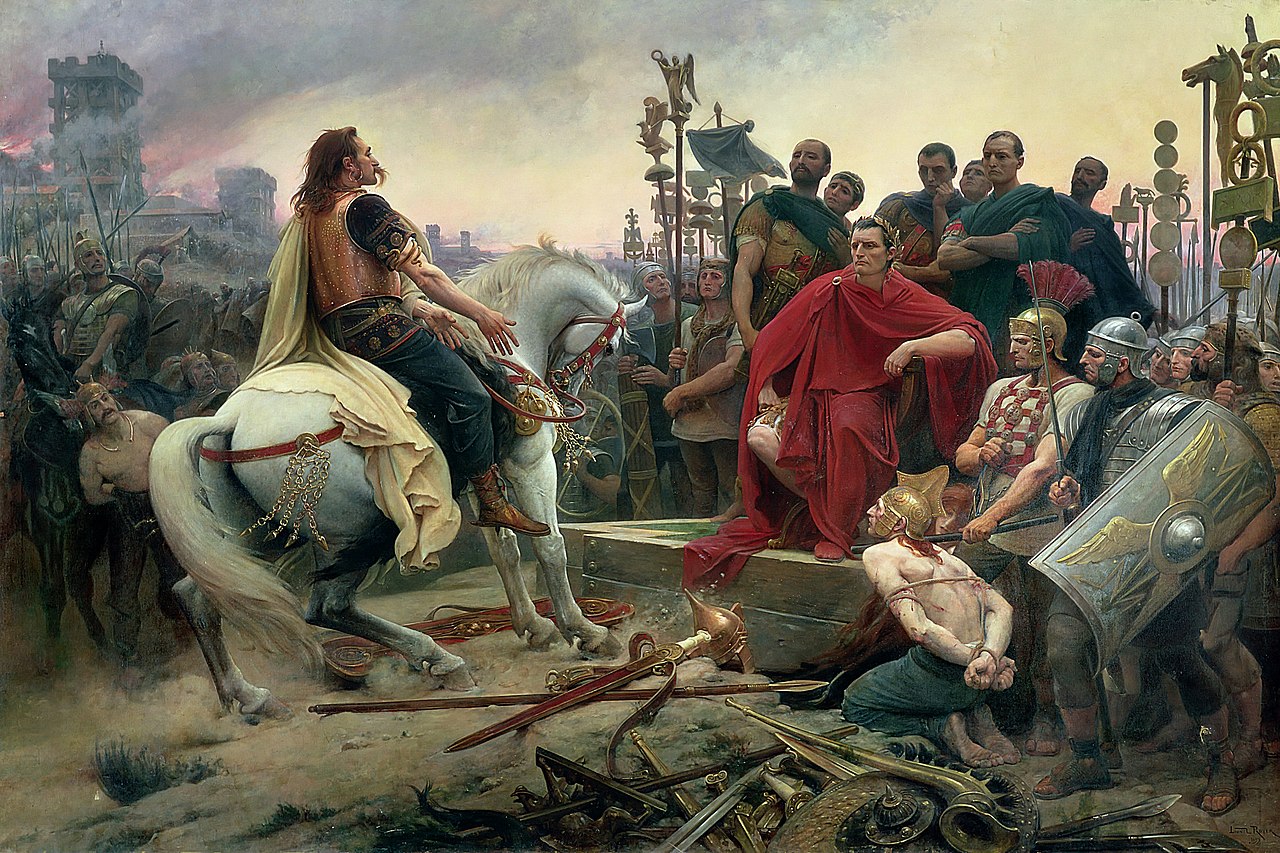
Dragon #107a, Defining: ?Cleanliness is next to godliness.? With
that simple truth, some advertising and
soap companies have tried to put forward
the theory that charisma follows from using
the right mouthwash, detergent, shampoo,
and deodorant. The notion has some basis
in truth -- we are sometimes judged by our
sweat -- but far more often, charisma and
popularity are measures of voice and stance.
Charisma can be studied in the ways of
public speaking. If you can speak to an
audience and hold their attention, then you
have substantial charisma. One study
(which I am unable to cite properly) suggested
that when an audience listens to a
speaker, they judge him according to the
following formula: 80% by his tone of
voice, 15% by his posture, his gestures, and
his expression, and 5% by the actual content
of the words. If this is true (and I,
personally, have a few doubts about the
percentages listed), then charisma would
seem to be a matter of being charismatic,
or, less paradoxically, of being smooth,
suave, positive, persuasive, gentle, and
sincere.
The typical series of conflicting advice
applies: speak up, but not too loudly. Be
firm, but not too aggressive. Use some
humor, but don?t do a stand-up-comedian?s
routine. Maintain eye contact, but don?t
glare. Introduce pauses into your speech,
but never allow dead time to build up into a
long silence. One could go quietly insane
trying to follow all of these items of advice,
when, in fact, speaking before an audience
must be a natural, comfortable thing to do.
One young woman I know exemplifies
another aspect of charisma: leadership. She
has the ability to spearhead a group through
the entire duration of a lengthy, difficult
project. She can run a science fiction convention,
with all of the hassle and infighting
that that entails. I, frankly, haven?t any real
idea of how she does this. I couldn?t do it.
She has the knack of soothing the ruffled
tempers and easing the injured egos of all of
the people involved. When disputes flare up
? and they always do ? she can arbitrate,
finding the optimum solution that leaves
everyone satisfied, if not happy. Does she
ever lose her own temper? Certainly, yet
never in such a way as to alienate the people
she leads. Does she ever stumble, committing
goof-ups or gaffes? Yes, of course. She
also recovers from them. She is about to put
on her eighth semi-annual small convention,
and has enlisted the enthusiastic support
of an entire crew of volunteers. I?ll be
in there helping, and not quite knowing
why. A good leader brings out quality and
effort from a group, often more than they
know they have. For this reason, a group of
skilled and enthusiastic people (or even
hangers-on and detail chiselers like myself)
follow such a leader, respecting her for the
final success of the job.
Since not one person in a hundred is such
a leader, the rest of us must be satisfied with
lesser tasks of charisma. How many enemies
do you have? When was the last time
you made a peace overture to someone you
don?t like? How often do you participate in
spreading gossip? How often do you find
yourself shouting, swearing, or using rude
gestures?
Charisma, to a degree, can be improved
simply by being nice. Nice guys do not
necessarily finish last, but they always finish
loved. Pride and envy are the primary sins
against charisma.
Dragon #107b, Improving: The primary
function of charisma is to
define a character's ability to attract
and
retain henchmen or other sorts of followers.
Again, the nature of this abiltiy and
it's use
in the game make it practically impossible
to imagine a situation where a character
could raise his charisma score through
specific effort. Fortunately, the game
rules
do provide a long list of loyalty base
modifiers,
which produce the same effect.
Do you want to have a better chance of
keeping people in your service once you?ve
brought them into the fold? Give all of
your
associated NPCs ?just, kind, and invariable
? treatment, with its attendant +15%
bonus to the loyalty base, and the effect
is
the same as if you had a charisma of 15
instead of 13. Jeff is right on target
when he
says that charisma ?can be improved simply
by being nice.? The improvement isn?t
to
the charisma score itself, but is reflected
in
the end result.

Hi Elfdart,
To be in the Guard, a Frenchman had to be at least six feet tall, so there were surely some thousands of tall men in France in Napoleon's time.
No matter, as I agree that diet affects size and health. Interestingly enough, though, the current increase in average height seems to be an anomaly, for it is occuring where diet has not been significantly improved.
For 18 Constitution I think
of Mountain Men.
For 18 Strength I envisage
the participants in "The World's Strogest Men" contests ![]()
The latter are generally
above average height.
Cheers,
Gary
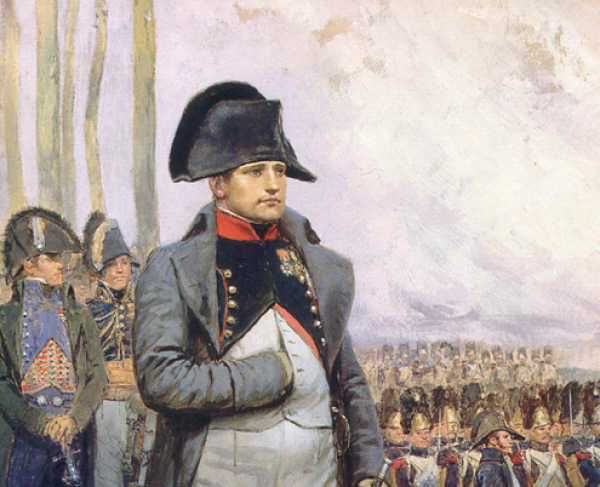

Indeed, increased weight
goes with the height and muscle mass muscle tht does not look like that
of a body builder ![]()
Cheers,
Gary

And in the final analysis
was a tyrant akin to Caesar. a great conqueror but a failure as a great
human being.
Cheerrs,
Gary
_(cropped).jpg)

I have read a bit about
that. There were a fair number of Nazi sympathizers amongst the British
nobility as well. Of course hitler was most charismatic...
cheers,
Gary


In reading about Hitler
it is evident that he could influence almost anyone that spoke with him,
even if that individual was quite opposed to the ideas being proposed by
Hitler.
He was also a master showman
and manipulator.
Cheers,
Gary
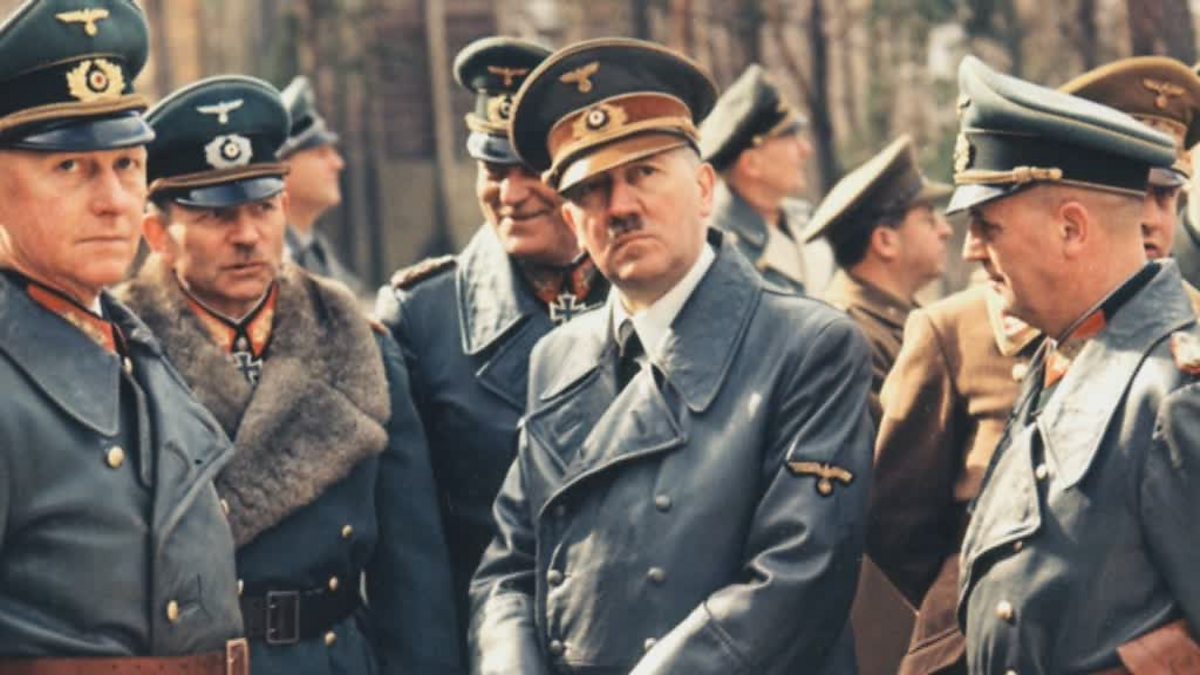

DMPrata wrote:
Sorry -- I remembered one
other question after I posted.
Did you intend a PC's maximum
number of henchmen (based on Charisma) to be a lifetime limit, or simply
the most he could have in service at any one time?

Right.
The rule is meant to a-ply
to the maxmum number of henchmen a PC is able to command at any given time,
not a lifetime number.
One or more might be dismissed
or be lost, and such vacancies can be filled with new retainers.
Cheers,
Gary

Quote:
Originally Posted by Noskov

First, I must say that I am truly honored.
This brings a question to mind that I've been dealing with lately.
What was the original intention
of Charisma and how was it meant to be implemented in a campaign? [snip]
Thanks

Salut Noskov,
My pleasure to be of service ![]()
As stated in the rules, Charisma
is meant to affect the reactions of characters--whether newly met NPCs
or familiar ones such as associates and followers.
Charisma score dictated
the number of loyal followers a PC might have, henchmen if you will.
When adventuring with only
one or two players' characters, having a body of loyal henchmen along meant
a lot in regards successfully surviving difficult encounters.
In roleplaying, the Chrisma
score of the PC should affect reactions of those to whom he speaks, is
dealing with.
Force of personality can
be a very potent tool in gaining what one desires, lack of it causing adverse
reactions.
PCs with low Charisma will
be typically be treated derisively and shabbily by NPCs encountered.
In real life think of the
popular and charming individual, someone who is the life of the party,
a smooth talker, able to sell ice to Esquimos, both a man's man and a lady's
man.
Contrast that model to the
loser who is laughed at, shunned, held in contempt, disliked...one with
low Charisma, in fact.
I think that should cover
it ![]()
Cheers,
Gary

Quote:
Originally Posted by Bullgrit
Especially with Charisma
being almost universally regarded as a "dump stat" through all editions,
did it have more relevance in your games (and how you envisioned everyone
else's games)? Did your games stick to (or even use) the reaction adjustment
and henchmen limitations given in the book rules? Or did you give Charisma
more (unwritten) weight in character interaction?

We did indeed use the reaction
adjustment for charisma as stated. That was used considerably when a PC
was meeting and seeking negotiation with an NPC. No added rules were needed,
only the DM's determination of what the PC's charisma would come into play.
Persuation is pretty well a self-evident factor in interpersonal dealings.